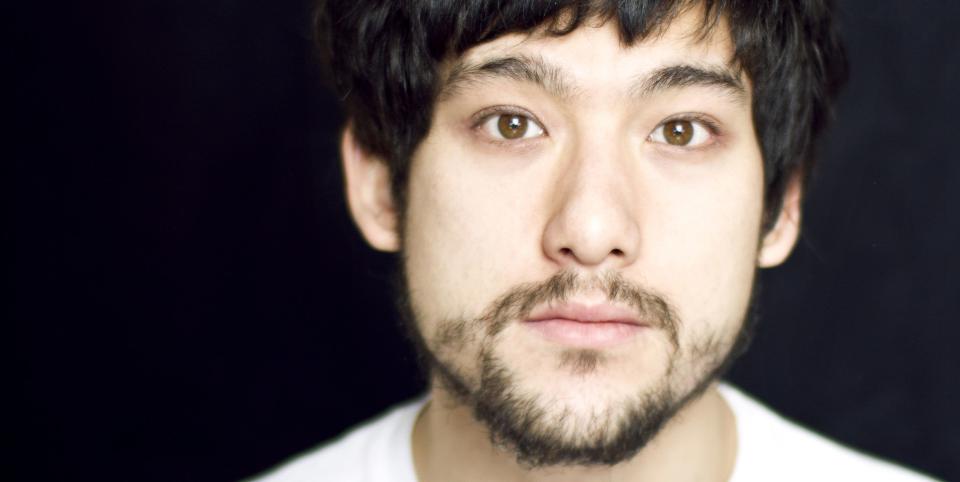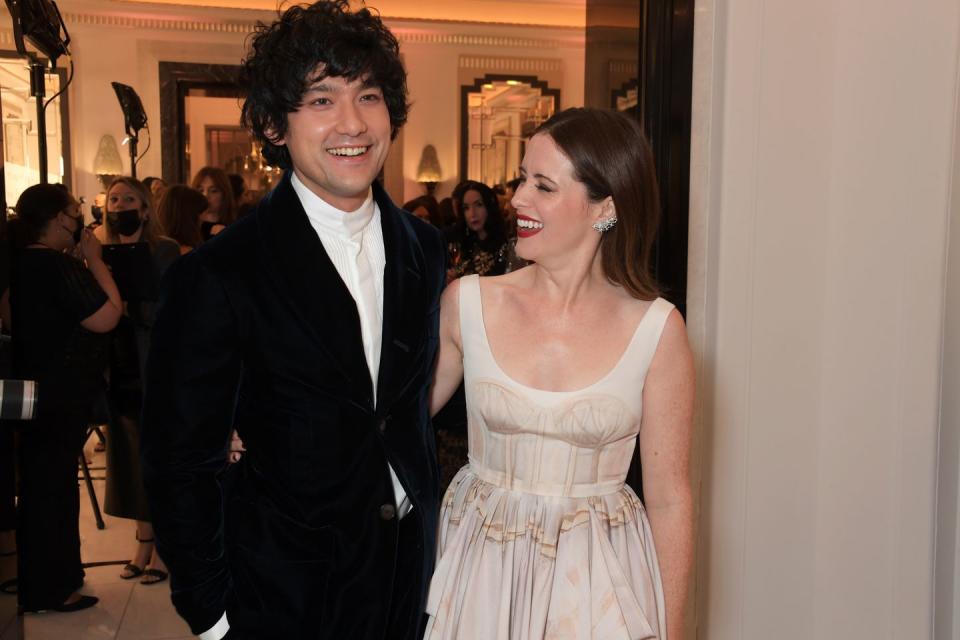Introducing Will Sharpe: the most exciting new name in British film

If you have never heard of Will Sharpe, you soon will. The director and actor is responsible for two of the UK’s most original television series’ and films this spring. Not content with working with the Oscar-winner and longtime collaborator Olivia Colman on the Sky television series Landscapers, he has also brought The Electrical Life of Louis Wain to the big screen with Benedict Cumberbatch and Claire Foy in the lead roles, and is fast becoming one of our leading auteurs.
Sharpe has been quietly making waves in British storytelling for a while. In 2016, his offbeat comedy series Flowers on Channel 4 trod the line between comedy and despair, exploring – with great pathos – the effects of mental illness on a family. Colman played Deborah Flowers, wife of the suicidal Maurice. “I just think she’s absolutely brilliant,” Sharpe tells me of their partnership, which began with this show. “She’s a very instinctive actor. I loved her in Peep Show and Green Wing, watched Tyrannosaur and was absolutely blown away by her range. I thought she’d be perfect for the part of Deborah in Flowers.”

Landscapers was a deeply collaborative effort. Conceived by Colman’s real-life husband Ed Sinclair, the four-part show is based on a true case, and follows the story of the couple Susan and Christopher Edwards, who were convicted of killing Susan’s parents. They spent 15 years on the run before the bodies were discovered buried in their back garden. Sharpe was brought in as the director and developed the scripts with Sinclair. The result redefines our conception of a true crime series, playing deftly with narratives that are saturated in deep colour that reflects their states of mind. For Sharpe, what concerned him was not whether the couple were guilty, but “the idea of the truth and the different versions of the truth”.

In one striking chapter, a police interrogation scene is interspersed with vignettes of the characters acting their parts on a stage. The conceit highlights the theatrical nature of interrogation and process of questioning. “At the centre of Landscapers, there’s this constant tension between the fantastical ideal of how something might be set against the slightly muddier, messier reality of how it really is,” says Sharpe. “I was trying to give a sense of how it might have felt to have rehearsed and convinced yourselves of the truths you’re going to present to the police. It must feel like these truths are very precarious.”
Indeed, the couple’s truths are shaped by Susan’s obsession with old movies. “Susan is someone who is fascinated by stories,” says Sharpe. “The show is about people who tell themselves stories about each other, about themselves, about the crime.” It’s at odds with the reporting of the crime in the media at the time; news stories would assume a causal link between the money gained by the murder and Susan’s penchant for Hollywood memorabilia. But instead, Sharpe looks, not so much at the motivation of these complex characters, but at the nuances and textures of their lives, including the abuse that Susan reportedly suffered at the hands of her father at an early age. “I started thinking about this idea of freedom, and how a certain amount had been taken away from her as a child.” Sharpe pauses. “Maybe that fascination with movies was a yearning for a kind of freedom. There was something about the space between all those truths. The unknowability of it all. That got under my skin – I couldn’t stop thinking about it.”
Sharpe’s film The Electrical Life of Louis Wain also hits cinemas this January. The period biopic explores the life of the artist whose anthropomorphic cat paintings captured the nation’s imagination in the early 1900s. The two projects may seem disparate, however, they have more in common than appearances suggest: “I’ve realised that they are both about outsiders,” Sharpe says. “Or people who are at odds with society in a slightly unusual way.”
Wain, who is played by a stellar Cumberbatch, supposedly had schizophrenia. When I spoke to Foy (who stars as Wain's wife) about film last year, she praised Sharpe’s approach to destigmatising mental health (she has herself been open about suffering from anxiety). “Will is very special,” Foy told me. “He has such a humanity to him. He is non-judgmental.” Indeed, this is a characteristic that defines much of the work he has created, from his BAFTA-winning portrayal of the rent boy Rodney in the 2019 series Giri/Haji to the culture clash of the Japanese lodger Shun with the British Flowers family.

As for the immediate future, Sharpe has no plans, except to spend time with his family, having just become a father again with his partner, the Loki actress Sophia di Martino. “The only way of deciding what to do next is – at some point, you just become obsessed with a certain idea, and then that’s the thing that you’re doing.” We can’t wait to see the results of the talented Mr Sharpe's latest obsession...
“Landscapers” is on Sky Atlantic, and Now TV. “The Electrical Life of Louis Wain” is out in cinemas now.
You Might Also Like

